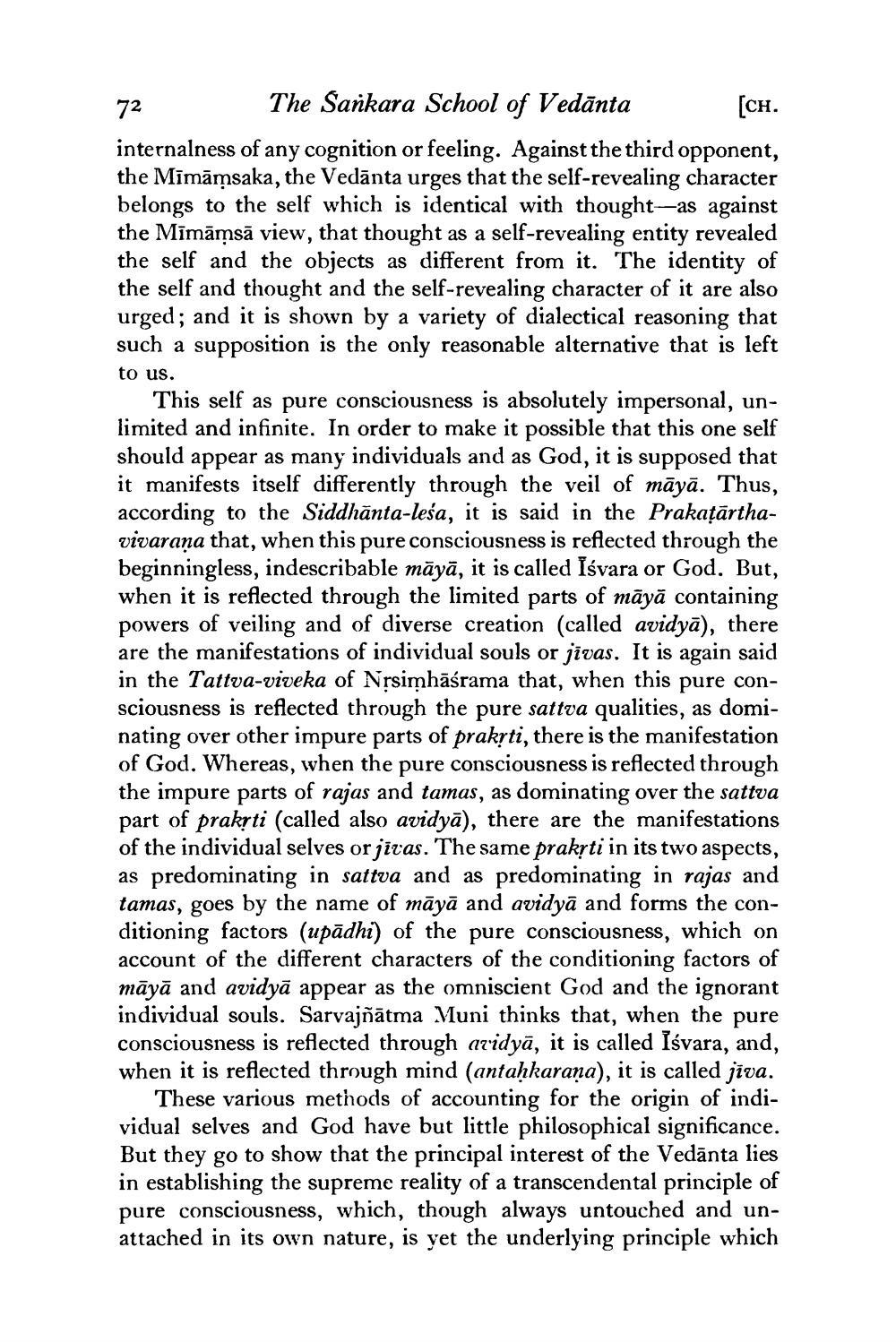________________
72
The Sankara School of Vedanta
[CH.
internalness of any cognition or feeling. Against the third opponent, the Mīmāmsaka, the Vedanta urges that the self-revealing character belongs to the self which is identical with thought—as against the Mīmāmsā view, that thought as a self-revealing entity revealed the self and the objects as different from it. The identity of the self and thought and the self-revealing character of it are also urged; and it is shown by a variety of dialectical reasoning that such a supposition is the only reasonable alternative that is left
to us.
This self as pure consciousness is absolutely impersonal, unlimited and infinite. In order to make it possible that this one self should appear as many individuals and as God, it is supposed that it manifests itself differently through the veil of māyā. Thus, according to the Siddhanta-lesa, it is said in the Prakaṭārthavivarana that, when this pure consciousness is reflected through the beginningless, indescribable māyā, it is called Isvara or God. But, when it is reflected through the limited parts of maya containing powers of veiling and of diverse creation (called avidyā), there are the manifestations of individual souls or jivas. It is again said in the Tattva-viveka of Nrsimhāśrama that, when this pure consciousness is reflected through the pure sattva qualities, as dominating over other impure parts of prakṛti, there is the manifestation of God. Whereas, when the pure consciousness is reflected through the impure parts of rajas and tamas, as dominating over the sattva part of prakṛti (called also avidya), there are the manifestations of the individual selves or jivas. The same prakṛti in its two aspects, as predominating in sattva and as predominating in rajas and tamas, goes by the name of māyā and avidyā and forms the conditioning factors (upadhi) of the pure consciousness, which on account of the different characters of the conditioning factors of māyā and avidya appear as the omniscient God and the ignorant individual souls. Sarvajñātma Muni thinks that, when the pure consciousness is reflected through avidyā, it is called Iśvara, and, when it is reflected through mind (antaḥkarana), it is called jiva.
These various methods of accounting for the origin of individual selves and God have but little philosophical significance. But they go to show that the principal interest of the Vedanta lies in establishing the supreme reality of a transcendental principle of pure consciousness, which, though always untouched and unattached in its own nature, is yet the underlying principle which




